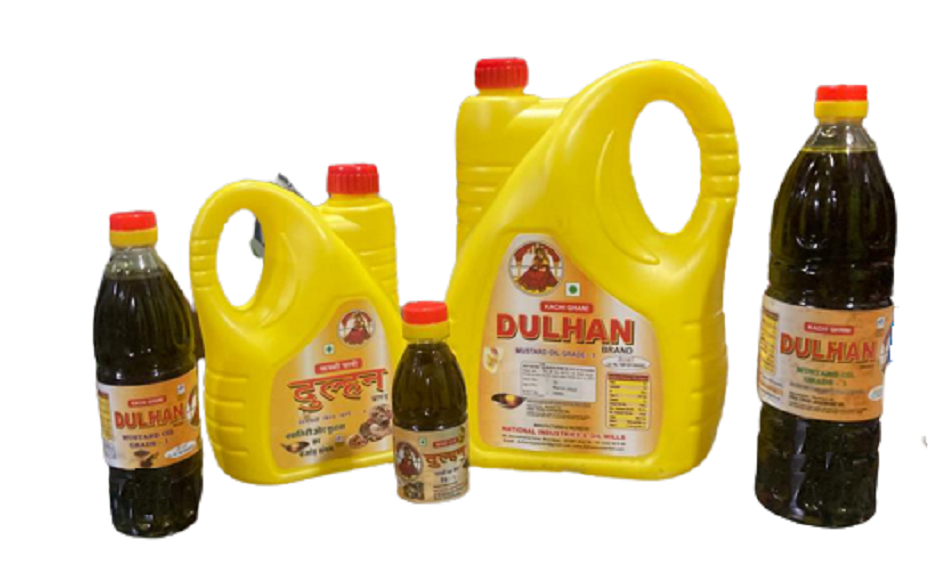Manufacturing Process
The process of manufacture is well established and conventional. To begin with, dry mustard seeds are fed to Table Ghani or oil extractor wherein about 90% of the oil is extracted. Further processing in expeller results in additional extraction of oil. Liquid oil and solid portion is then separated in filters. The solid portion known as oil cake is sold as cattle feed. Edible oil is packed either in tins, jars or food grade plastic pouches. The oil contents depend upon quality of seeds but the average recovery of oil from seeds is in the range of 35% to 45%.















